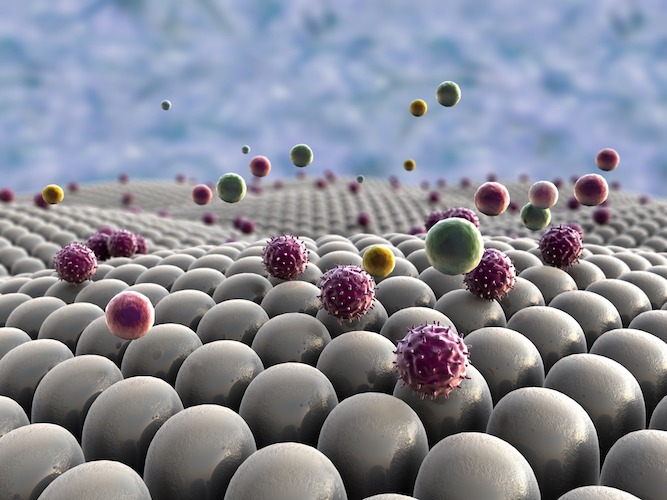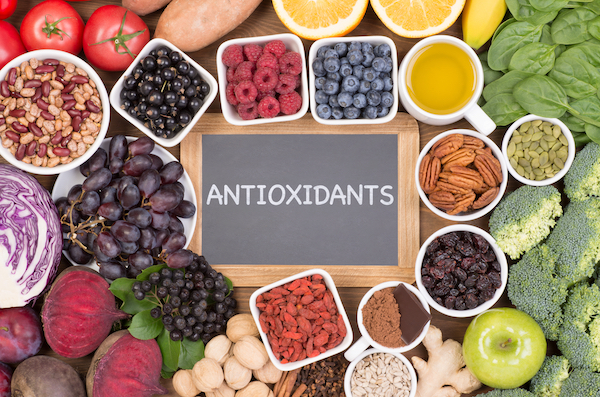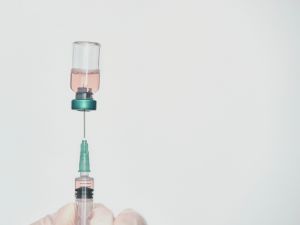A simple way to think of free radicals is as waste products; they are natural byproducts of the body’s many chemical processes, such as breathing and eating. Environmental toxins, household chemicals and cigarette smoke can also expose us to free radicals, which can be built up and can harm the cells in the body.
You may have heard that some foods can protect us from free radical damage, these are the foods rich in antioxidants, and antioxidants are any substance that counteracts the deterioration or damage in a living organism.
Free radicals are a crucial part of the immune system, floating through the blood supply in white blood cells ready to attack bacteria, viruses and clean up damaged cells. The liver also produces and uses free radicals for detoxification.
Quick facts – sources of free radicals
- Free radicals form because of oxidation as toxins are broken-down in the body, the liver produces some as it breaks down compounds and removes waste
- Body functions, such as breathing and digestion, will generate free radicals.
- Exposure to other environmental pollutants.
- High-stress levels.
- A diet of processed foods and unhealthy fats
- Consuming large amounts of sugar or artificial sweeteners and synthetic additives.

Free radical damage, the science bit.
Antioxidants became well known in the 1990s when scientists realised the effects of free radicals on cancer growth, atherosclerosis and other chronic conditions. Over the subsequent decades, scientists have conducted many studies on the impact of antioxidants with mixed results, but most agree they are essential to neutralise free radicals in the body.
Scientists do not consider free radicals in small controlled quantities harmful. They are helpful in a healthy metabolism, but problems can start when the production of free radicals increases or gets out of control. In excess, they will speed up ageing.
Ageing results from oxidative stress and cellular oxidation, over time, free radicals cause damage to all the cells in the whole body, which leads to age-related symptoms and illnesses.
How to reduce oxidative stress
Limiting exposure to sources of stress can be a challenge, but there are things which can limit exposure to oxidative stress and fight against free-radical damage.
Consume antioxidant-rich foods

- Antioxidants are natural substances which clean up free radicals. 5-10 servings of fresh fruits and vegetables daily, is the best way to ensure adequate intake of antioxidants.
- Eat more brightly
coloured fruits and vegetables; these also are rich in Vitamin C - Orange foods like carrots, sweet potatoes, mangoes, pumpkin
and squash, or cantaloupe - Red foods like berries, cherries, grapes or watermelon
- Drink green and white tea
- Eat fermented foods such as miso, kimchi, and kombucha
- Cruciferous vegetables broccoli, cauliflower, and Brussel sprouts
- Cocoa is rich in antioxidants; low sugar dark chocolate is full of antioxidants
- Include antioxidants herbs and spices such as turmeric, cinnamon, ginger, oregano
and rosemary.
Summary
The most effective way to reduce free radical damage in the body is by eating a healthy balanced diet and taking steps to manage life stress.







